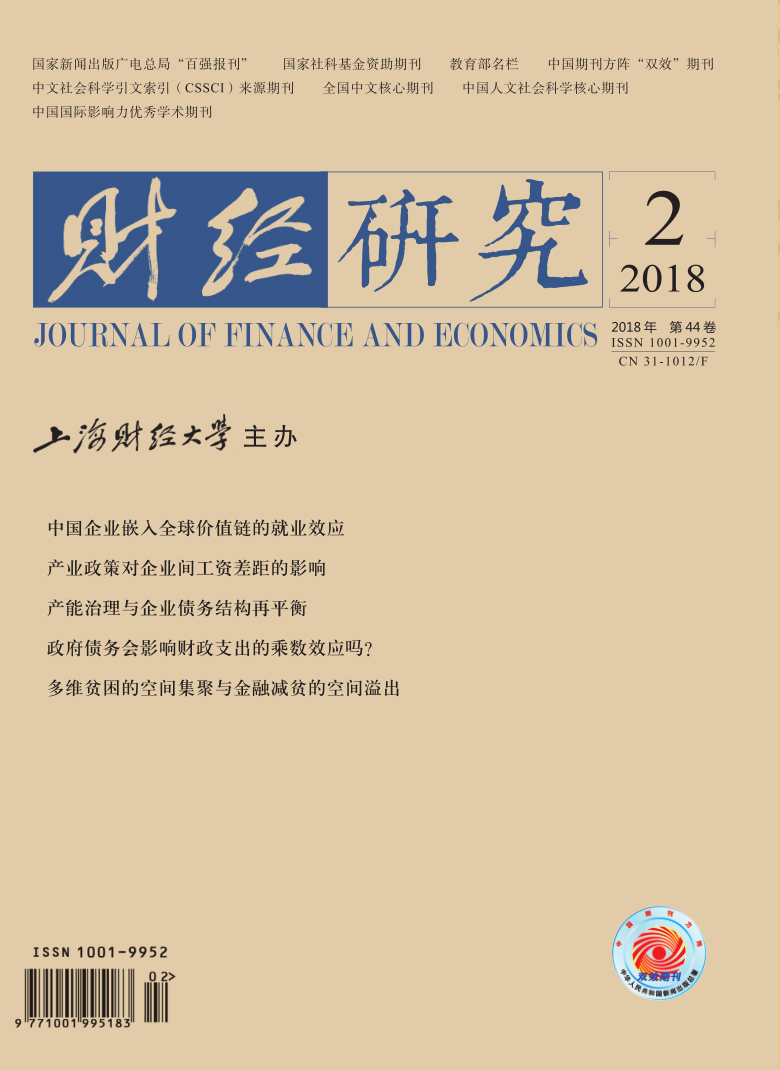文章利用多个微观数据集,检验我国家庭内同胞数量的增加是否会降低个体教育成就,以及这种影响是否因个体性别而存在差异。实证结果给出了肯定的答案:兄弟姐妹会对个体产生教育挤占效应,并且这种效应存在显著的性别差异。即个体的兄弟姐妹数量增加,将导致个体的受教育年限下降,无论个体是男是女都如此,但对女性来说这种效应会更加严重。上述结论在多个微观数据集和系列检验中均显示稳健。研究还表明,中国家庭偏好男孩的传统观念以及劳动力市场的性别歧视,是导致同胞数量对女性的教育挤占效应更加严重的重要原因。文章的研究结论对改善女性在教育中受到的歧视具有重要的政策含义。
更多兄弟姐妹是否降低个人教育成就?*——来自中国家庭的微观证据
摘要
参考文献
1 贾志科, 吕红平. 论出生性别比失衡背后的生育意愿变迁[J]. 人口学刊, 2012, (4): 34—45.
2 李宏彬, 张俊森. 中国人力资本投资与回报[M]. 北京: 北京大学出版社, 2008.
6 周钦, 袁燕. 家庭基础教育投入决策" 男孩偏好”的理论与实证研究[J]. 人口学刊, 2014, (3): 14—24.
7 Anastasi A. Intelligence and family size[J]. Psychological Bulletin, 1956, 53(3): 187—209. DOI:10.1037/h0047353
8 Angrist J, Lavy V, Schlosser A. Multiple experiments for the causal link between the quantity and quality of children[J]. Journal of Labor Economics, 2010, 28(4): 773—824. DOI:10.1086/653830
10 Becker G S, Lewis H G. On the Interaction between the quantity and quality of children[J]. Journal of Political Economy, 1973, 81(2): S279—S288. DOI:10.1086/260166
11 Blake J. Family size and achievement[M]. Berkeley: University of California Press, 1989.
12 Blau P M, Duncan O D. The American occupational structure[M]. New York: Wiley, 1967.
13 Chi W, Li B. Glass ceiling or sticky floor? Examining the gender earnings differential across the earnings distribution in urban China, 1987—2004[J]. Journal of Comparative Economics, 2008, 36(2): 243—263. DOI:10.1016/j.jce.2007.12.001
14 De Graaf P M. The impact of financial and cultural resources on educational attainment in the Netherlands[J]. Sociology of Education, 1986, 59(4): 237—246. DOI:10.2307/2112350
15 Ejrnæs M, Pörtner C C. Birth order and the intrahousehold allocation of time and education[J]. The Review of Economics and Statistics, 2004, 86(4): 1008—1019. DOI:10.1162/0034653043125176
16 Galton F. Proposal to apply for anthropological statistics from schools[J]. The Journal of the Anthropological Institute of Great Britain and Ireland, 1874, 3: 308—311. DOI:10.2307/2840903
17 Huang W, Lei X Y, Zhao Y H. One-child policy and the rise of man-made twins[J]. Review of Economics and Statistics, 2016, 98(3): 467—476. DOI:10.1162/REST_a_00567
18 Kantarevic J, Mechoulan S. Birth order, educational attainment, and earnings: An investigation using the PSID[J]. Journal of Human Resources, 2006, 41(4): 755—777.
19 Kessler D. Birth order, family size, and achievement: Family structure and wage determination[J]. Journal of Labor Economics, 1991, 9(4): 413—426. DOI:10.1086/298275
20 Lindert P H. Sibling position and achievement[J]. The Journal of Human Resources, 1977, 12(2): 198—219. DOI:10.2307/145385
21 Sandberg J, Rafail P. Family size, cognitive outcomes, and familial interaction in stable, two-parent families: United States, 1997—2002[J]. Demography, 2014, 51(5): 1895—1931. DOI:10.1007/s13524-014-0331-8
引用本文
钟粤俊, 董志强. 更多兄弟姐妹是否降低个人教育成就?*——来自中国家庭的微观证据[J]. 财经研究, 2018, 44(2): 75–89.
导出参考文献,格式为:
下一篇:中国分区域城镇居民福利水平测度





 11837
11837  15456
15456

